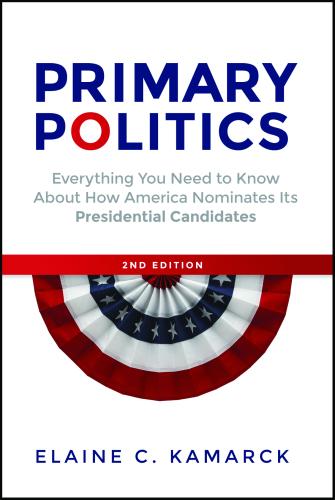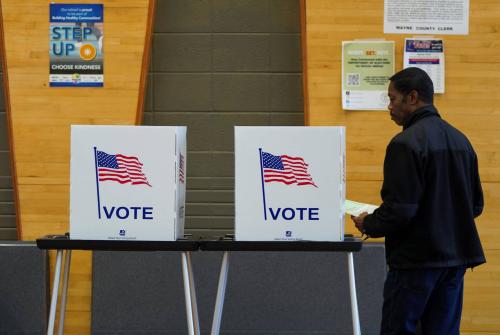The 2016 presidential election will be remembered for many things, but one of the most unusual was the repeated claims, by leaders in both parties, that the election was “rigged.” We now know that many of these accusations were promoted by Russian hackers intent on aggravating divisions between and within the political parties and fomenting distrust in the democratic system.
But as citizens we may have been better able to see through the disinformation spewed out had anyone asked the simple question: “How?” Or, “What does it mean to rig an election?”
Stealing votes
The first and most straightforward way to “rig” an election is to arrange to steal votes. There is a long and storied history of vote stealing in American elections. In most states voter registration laws weren’t enacted until the middle of the 19th century and even they didn’t stop chicanery at the polls. One popular tactic of the big-city political machines was to vote the graveyards. They would get a group of people who went from precinct to precinct voting in the name of people who had died and were still on the rolls. This was pretty easy to do in the days before computer technology could update voter rolls.
The list of other ways you can commit electoral fraud is lengthy. Voter intimidation, vote buying, disinformation, confusing or misleading ballots, ballot stuffing, mis-recording of votes, destruction of ballots, tampering with voting machines, and voter impersonation are just a few. But these days, elections are closely monitored. Voter rolls are still imperfect but they are more up to date than ever and states have laws providing for mandatory recounts (where the vote is very narrow) or optional recounts (where a candidate thinks something has gone wrong and agrees to pay for a recount.)
The two major political parties and the major candidates get “lawyered up” before election day. Both sides have teams ready to go to court at the slightest hint that something is wrong. So if any of the many campaigns in 2016 had been stealing votes wouldn’t we have heard about it? Were the hundreds of lawyers on each side stupid or asleep at the switch? Wouldn’t they have gone to court? Or asked for recounts?
After the general election, and in accordance with the law, recounts were requested in only five states. In Wisconsin and Nevada the recounts were completed and showed only minor changes. In Pennsylvania the recount never happened and in Michigan a partial recount didn’t indicate that the results there would have changed.
After the inauguration, President Trump’s Commission on Election Integrity was formed to look into Trump’s dubious claim that Hillary won the popular vote with the votes of illegal immigrants. So far, it has produced nothing to support that claim and a great deal of resistance from state election officials of both parties.
The presidential primaries went off without extensive evidence of voting irregularities as well. In 2016 there were more than forty presidential primaries and hotly contested races in both parties. The Bernie Sanders campaign considered asking for recounts after narrow losses in Kentucky and Missouri but didn’t. On the Republican side, Ted Cruz, the only candidate who ever came close to Trump, considered a recount in Missouri where he narrowly lost to Trump but in the end did not pursue it. In states that didn’t use primaries, caucuses were held to select delegates. Some of these were quite raucous, especially those in Iowa and Nevada, with charges of cheating made in both parties. And yet, credentials challenges were not filed in either case at either convention.
Rigging the system
The second way to “rig” an election is to create a system that works in favor of one candidate or one type of candidate. The general election was “rigged,” if you will, more than 200 years ago when the Founding Fathers wrote it into the Constitution and, by giving each state (no matter how small) a congressman and two senators, gave small states more clout than large states. They have the same clout in the Electoral College.
Of course, candidates or political parties could try and change how the electors are awarded. A few years ago, someone suggested that California award electors to candidates on the basis of who won the congressional district instead of on who won the state. It wouldn’t be a bad idea if it were applied nationally. But if it were only done in California it would benefit Republicans over Democrats since they would pick off some electoral votes out of that very big state and deny Democrats a winner-take-all outcome.
Nomination races are, however, not covered by the Constitution. They are under the exclusive discretion of the political parties and they have changed greatly over the years. However, in recent years, the nomination system is dominated by state-run primaries so the potential to “rig” a season for a candidate is limited. Nonetheless, as I detail in my book Primary Politics, presidential candidates can try to create a favorable system.
First, they can create a favorable sequence of contests. President Jimmy Carter used his influence with his fellow southern governors to create a southern super Tuesday (which still exists today). This gave him an early delegate lead in a long fight against Senator Ted Kennedy. Ronald Reagan’s campaign created the early South Carolina primary so that he could beat Texas Governor John Connally (the only southerner in the race) early, get him out of the race and sweep the other southern states.
Candidates can also try to get favorable rules under which delegates can be awarded to presidential primary winners. In the 1984 Democratic contest Walter Mondale’s campaign fought to retain a certain kind of primary (called the loophole primary) in Illinois and Florida which ended up helping Mondale to a significant delegate edge over his young challenger Gary Hart. Years later New York City Mayor Rudi Giuliani, running for the Republican nomination, realized that he would do well in New Jersey, a neighboring state. So with the help of his supporters his campaign managed to change New Jersey to a winner-take-all state.
In 2016 there was very little evidence that candidates in either party managed to “rig” the system. The sequence of states is nearly identical to what it was in 2012. The early states, Iowa, New Hampshire, Nevada and South Carolina remained the same. Big states like California stayed pretty much in the same place as well. As for creating favorable delegate allocation rules, Democrats no longer have the option of changing those rules. Since 1992 all states award Democratic convention delegates in the same way. On the Republican side, there is no evidence that any of the candidates had the political strength or expertise to influence how states awarded delegates. In all, the nomination systems in both parties in 2016 looked very much like the nomination systems in both parties in 2012.
Tilting the playing field
A final way to “rig” the system is to give a candidate an advantage or disadvantage in some part of the system not related to the elections themselves. Just before the Democratic Convention, Wikileaks released hacked emails from the Democratic National Committee revealing that party staffers did not like Bernie and were suggesting ways to beat him. But there was no evidence that party officials acted on their preferences in ways that would affect the fight for delegates. (One can only imagine what staffers at the Republican National Committee were saying about Donald Trump as he won primary after primary, upsetting the Republican establishment!) And, as we now know from Donna Brazile’s expose, the Clinton campaign took over the DNC long before she won the nomination—paying the bills in return for control over staffing. Questionable as that was there is no evidence that party officials did anything that could be construed as interfering in the primary process.
About the closest to “rigging” the Democrats came was to schedule few debates and to schedule them at bad times. This was probably not good for Bernie Sanders but it seems to fall somewhat short of “rigging” the system.
Accusations about the electoral system being “rigged” should be taken seriously since they cut to the heart of our democracy. But the next time Russian trolls start promoting this line we should stop and ask the basics: What, when, why and where?
At the Democratic Convention last summer a very earnest Bernie Sanders delegate told me that Hillary had stolen the election. I responded somewhat skeptically that she had won more than three million more votes than Sanders. Later in the evening I relayed this conversation to a seasoned politician who replied (tongue in cheek) “Damn! If she can steal 3 million votes she should be president!”
Elaine C. Kamarck is a Senior Fellow at the Brookings Institution and author of Primary Politics: Everything You Need to Know about How America Nominates Its Presidential Candidates. She is a superdelegate to the Democratic convention.







Commentary
How to rig an election in three not-so-easy steps
November 30, 2017